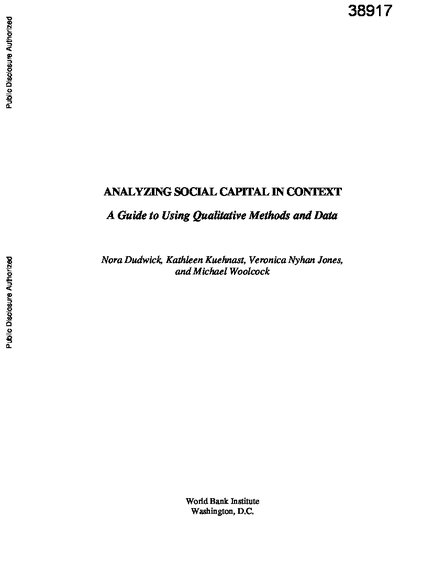
Social capital, defined most practically as social networks and norms, mediates development opportunities and outcomes. As such, social capital research increasingly informs the design and evaluation of World Bank-supported projects and policies across diverse regions and countries, from Albania, Guatemala, and Indonesia to Nigeria, India, and the Kyrgyz Republic. While robust conclusions regarding correlations between development impacts and social capital can be gained through quantitative research alone, this is far from an ideal approach. Because social capital exists between individuals and groups, it is preferable to employ some qualitative and participatory methods to understand the causes and nuances of relationships and the contexts within which they exist. This companion piece to an earlier paper on quantitative approaches to measuring social capital (Grootaert et al. 2004) assists researchers and development task managers in their efforts to better understand and incorporate the social sphere into their work. This document offers a set of qualitative tools and strategies that are useful for gauging the nature and extent of people’s interactions with each other and with key private, public, and civic institutions. Anticipating the time constraints of task managers, researchers, and respondents, this guide offers a select, fieldtested group of tools and questions for data collection.